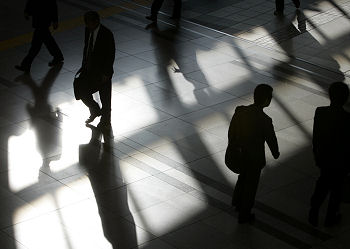by Steven Milloy on FOX News.com
It’s time again for JunkScience.com’s review of the most notable junk science events of the year – a “top 10” list that may sometimes make you think that the year 1007, rather than 2007, is just around the corner.
1. Some Real Inconvenient Truth. Al Gore whipped the world into a global warming frenzy with his doomsday documentary, “An Inconvenient Truth.” I personally asked Mr. Gore to help arrange a debate between scientists about the purported climate catastrophe. He declined (twice) without explanation – leaving me to wonder why global warming alarmists are unwilling to explain why they believe in non-validated and always-wrong computer guess-timations of future climate change rather than actual temperature measurements and greenhouse-effect physics that indicate manmade emissions of greenhouse gases are not a problem.
2. Board of Health or Bored of Science? New York City’s Board of Health banned restaurants from serving foods cooked with vegetable oils containing trans fats. It apparently mattered little to the Board that the Food and Drug Administration classifies trans fats as “generally recognized as safe” and that the sort of “science” the Board relied on could also be used to ban potatoes, peas, meat, dairy products and many other food items from restaurants.
3. What Hurricane Season? The National Oceanic and Atmospheric Administration’s prediction for the 2006 hurricane season was about as wrong as wrong can be. NOAA predicted only a 5 percent chance of a below-normal hurricane season – but a below-normal season is precisely what happened. If NOAA’s experts can be so wrong about an imminent hurricane season, why have any confidence in far more complex predictions of climate change 100 years into the future?
4. Day of Reckoning for DDT Foes? It only took 30 years, tens of millions of lives lost, billions sickened and trillions of dollars of economic growth foregone, but the World Health Organization finally ended its ban on use of the insecticide DDT to kill malaria-bearing mosquitoes. It’s great news for developing nations that want to employ the most affordable and effective anti-malarial tool. So what should happen to those environmental activists and government regulators who used junk science to have DDT banned in the first place?
5. Cosmic ray study fails to penetrate lead-lined media. Swedish researchers provided experimental evidence that cosmic rays may be a major factor in climate change. They calculated that just 5 years of cosmic ray activity can have 85 percent of the effect on the Earth’s climate as 200 years of manmade carbon dioxide emissions. Though the study was published in the prestigious Proceedings of the Royal Society A, the findings went largely unreported by the Al Gore-smitten media.
6. Stem cell fraud and futility. Incoming Speaker of the House Nancy Pelosi plans to introduce legislation lifting the limits on federal funding of embryonic stem cell (ESC) research. But she ought to pay attention to what did, and what did not happen, in ESC research during 2006. What did happen was the indictment of prominent South Korean ESC researcher Hwang Woo-suk for faking his research. What didn’t happen was any meaningful advance in ESC research. One alleged ESC research advance hyped in the journal Nature (harvesting of ESCs without destroying the embryos) had to be corrected to note that none of the embryos in question actually survived the procedure – oops.
7. Low-fat diet myth busted. The widely-held 30-year old notion that low-fat diets are good for your health went “poof” this year. They didn’t reduce the risk of cardiovascular disease or cancer, according to three large studies published in the Journal of the American Medical Association. Sadly, the lesson of low-fat diet myth seems lost on the media which looked the other way as public health nannies fomented the scientifically dubious trans fat scare.
8. Woodpecker Racket. The 2005 reported sighting of the thought-to-be-extinct Ivory-billed Woodpecker in eastern Arkansas raised hopes of bird-watchers everywhere. But a prominent bird expert cast serious doubt on the report in 2006, characterizing it as “faith-based” ornithology and “a disservice to science.” But the debunking may not matter. Environmental groups used the dubious sighting to convince a federal judge in July 2006 to stop a nearby $320 million Army Corps of Engineers irrigation project. Given that the anti-development Nature Conservancy funded the “search” for the woodpecker in the first place, the supposed “sighting” turned out to be quite convenient.
9. Food police indict SpongeBob Squarepants. Several anti-fun food activist groups sued Nickelodeon and Kellogg for using cartoon characters to advertise food products to children. “Nickelodeon and Kellogg engage in business practices that literally sicken our children,” the groups claimed. Though the activists attempted to exploit a widely publicized report from the Institute of Medicine concluding that advertising to kids is effective, the IOM report did not examine and, therefore, did not link advertising to kids’ health problems.
10. California’s Not-so-deadly Air. Bill Clinton and Julia Roberts stumped for California’s Proposition 87 which would tax oil to fund alternative energy research. Mr. Clinton and Ms. Roberts claimed that California’s air is the “worst in the nation” and that it was linked with more asthma, bronchitis, lung cancer, heart disease, lung disease and premature death. But data (as opposed to political rhetoric) indicate that California’s public health is generally better than that of states which fully meet federal air quality standards. Maybe that’s one reason why voters rejected Proposition 87.
So despite the relentless march of junk scientists, particularly with respect to global warming, let’s be grateful that the DDT ban has finally been lifted. We’ll tackle Al Gore and his climate groupies next year.
Steven Milloy publishes JunkScience.com and CSRWatch.com. He is a junk science expert , anadvocate of free enterprise and an adjunct scholar at the Competitive Enterprise Institute .




